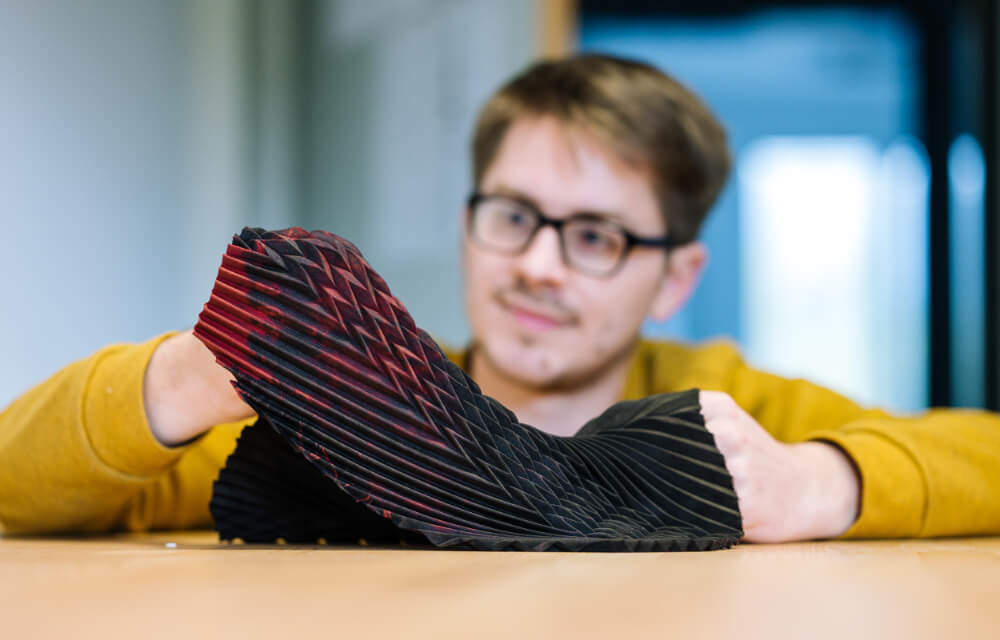News Archive

Whether in fitness, medicine or in the entertainment industry, IT devices worn on the body, such as smart watches, are becoming increasingly popular. Such wearables benefit from the input device fitting as naturally as possible to the body – for example as electro-sensitive fabrics, so-called e-textiles. Computer scientists at Saarland University show how these special textiles can be produced in a comparatively easy way, thus opening up new use cases.

How can I get a drone to perform little tricks? Is it difficult to program a robot? And how does a machine actually learn? Children and young people can deal with questions like these in the Computer Science lab for schoolchildren. At present, the lab mainly offers online services aimed at students of different ages and also at teaching staff. They aim to promote the understanding of computer science in society as a whole.

Across Europe, leading researchers in the field of artificial intelligence (AI) and machine learning have joined forces in the Ellis network. They have two goals: To establish top international research on these topics in Europe and to strengthen Europe economically in this field. This is to create a counterweight to the current dominance of US and Chinese AI initiatives.

People adapt their language to their conversation partners, for example by using technical terms. Computers, on the other hand, still find it difficult to react individually to different users. Vera Demberg wants to change that. The professor at the Department of Computer Science and Computational Linguistics at Saarland University is tackling a key issue of communication: People infer things beyond what is literally said – and everyone makes his or her own assumptions. This fact poses a major [...]

Researchers use Big Data to develop individualized cancer therapies. Data protectionists doubt the security of digital patient files. How do we shape the ongoing digitalization process? IT developments have reached sensitive areas of everyday life and must therefore be closely scrutinized. In order to promote high-quality reporting on such topics, the State Chancellery of the Saarland together with the Saarland Informatics Campus is awarding the Journalist Award for Informatics.
3839404142 ...
70»
